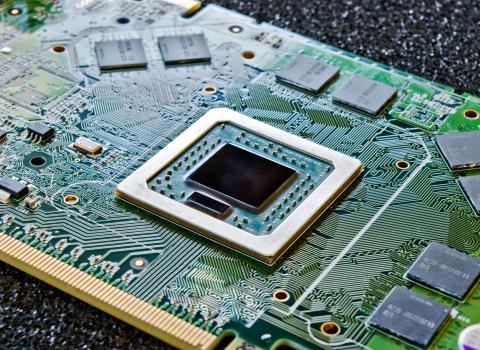Greater R&D investment and deployment at forefront of call for an “ambitious and forward-looking” revision to the EU Chips Act

Photo credits: European Semiconductor Industry Association
EU governments say there is an “urgent need” for an “ambitious and forward-looking” follow-up to the EU Chips Act, in a declaration presented to the European Commission on September 29.
“To secure and strengthen our global position, the EU must prioritise the semiconductor sector as a strategic industry, on par with aerospace and defence, and treat it as a key target for investment, R&D and innovation,” the text, signed by all 27 EU member states, reads.
With global competitors stepping up investments, the governments are calling for “a bold and coordinated agenda, aligning national and regional strategies with EU-level initiatives.”
The aim of the declaration is to secure Europe’s strategic autonomy, strengthen its leadership in semiconductors and enable faster commercialisation of innovation. “We’ve underlined with this joint strategy the need to increase production capacity, invest in cutting-edge research and develop a skilled workforce throughout the EU,” said Dutch economic affairs minister Vincent Karremans, in a statement.
With the 2023 Chips Act, the EU set out to double its share of the global semiconductor market to 20% by 2030. However, earlier this year, a report from the European Court of Auditors found that the bloc is “far off the pace” needed to meet its ambitions.
In response to the auditors’ stark warning, member states propose adopting measurable targets with regular evaluation. Strategic objectives should include securing a reliable supply of semiconductors in critical sectors and developing technology leaderships at key points of the value chain, including R&D, materials, chip design, equipment, manufacturing and applications.
To deliver on these objectives, the text details several policy priorities. To strengthen its chips ecosystem, it says Europe should boost R&D efforts “from lower technology readiness levels up to first industrial deployment” and foster collaboration between public and private actors, especially in chip design.
To boost investment, meanwhile, it calls for greater alignment between national, European and private funding; an EU budget for 2028-34 that reflects the importance of strategic sectors and technologies such as semiconductors; and faster and simpler procedures for funding R&D projects and pilot lines under reformed competition instruments.
Other priorities include support for skills, greener manufacturing processes and international partnerships. Companies from “like-minded” countries should be able to form joint ventures with European firms and access EU-funded R&D infrastructures, member states say.
Industry backing
The declaration was drafted by the Semicon Coalition, an initiative launched in March by the Netherlands and eight other countries. All member states joined the group ahead of a meeting of industry ministers in Brussels last week, where they handed the text over to the Commission.
The text also received the backing of the European semiconductor industry. “We believe that the policy priorities lay the groundwork for a strong European semiconductor strategy,” reads a statement signed by 75 companies, trade associations and research organisations. “We urge the signatories to immediately start a process to define clear goals and underpin these goals with a measurable execution strategy.”
Related articles
- CEA-Leti targets energy efficiency ahead of Chips Act 2.0
- EU remains committed to global collaboration on microchips
- EU ‘far off the pace’ on chips targets, auditors find
Laith Altimime, president of industry group Semi Europe, urged the EU to adopt a “secured budget line” for semiconductors in its next long-term budget, alongside “simplified procedures and revised competition rules for the industrial uptake of R&D outputs.”
In September, the Commission launched a call for feedback on the current Chips Act and possible future changes, which will close on November 28. It is required to submit its first evaluation of the Chips Act to the European Parliament and the EU Council by September 2026, which Henna Virkkunen, the commissioner responsible for tech sovereignty, has confirmed will inform a forthcoming Chips Act 2.0.





 A unique international forum for public research organisations and companies to connect their external engagement with strategic interests around their R&D system.
A unique international forum for public research organisations and companies to connect their external engagement with strategic interests around their R&D system.